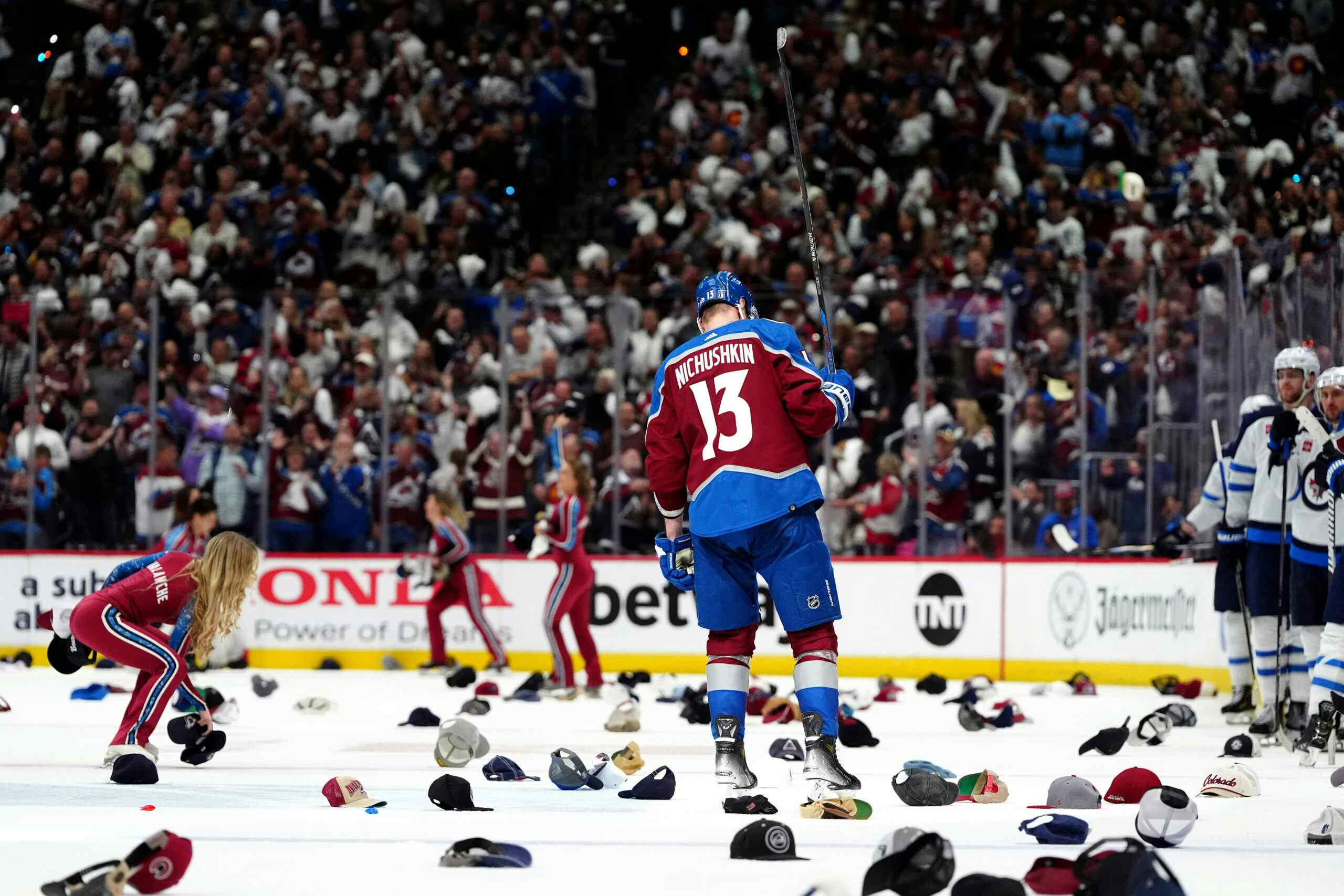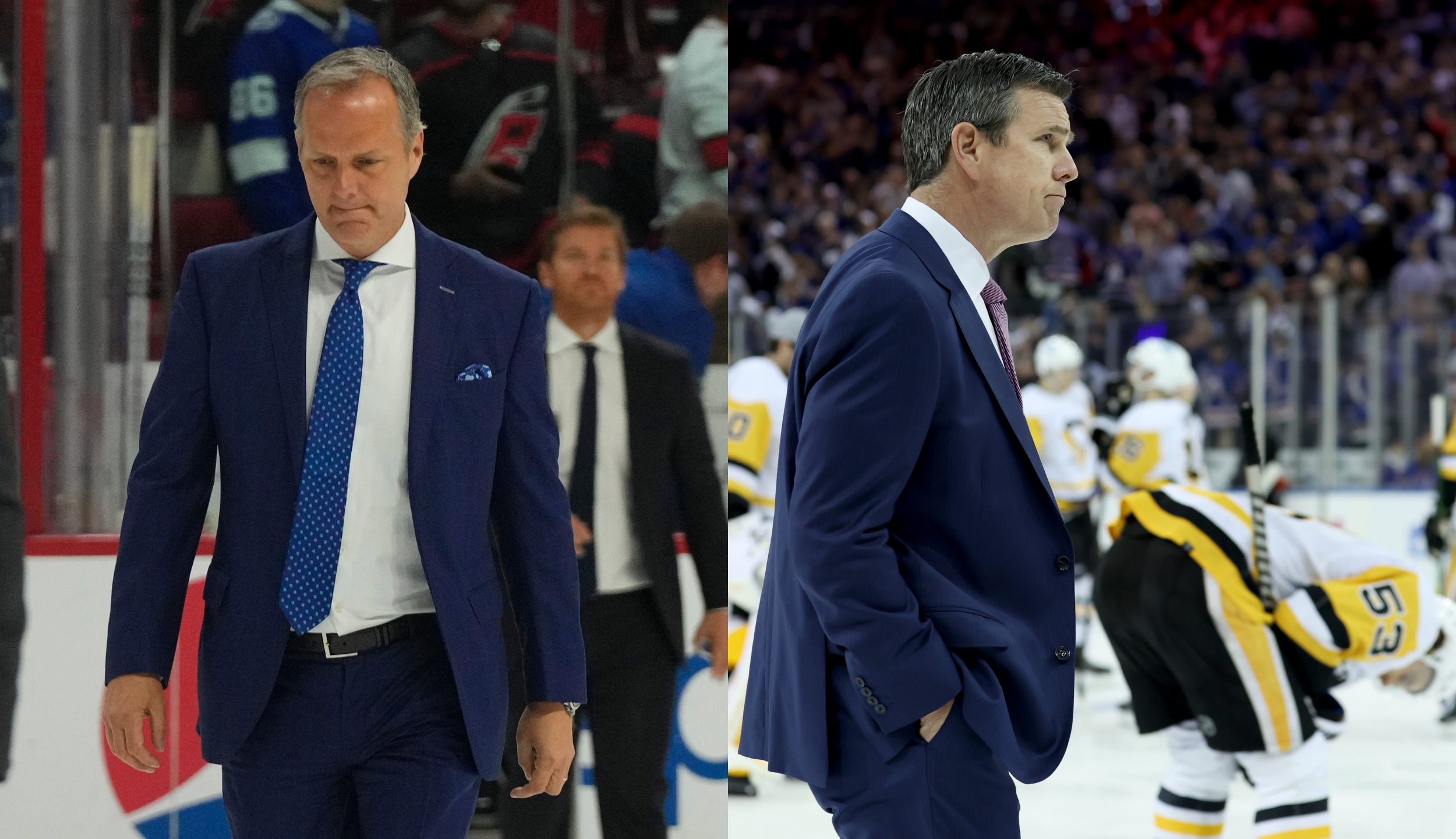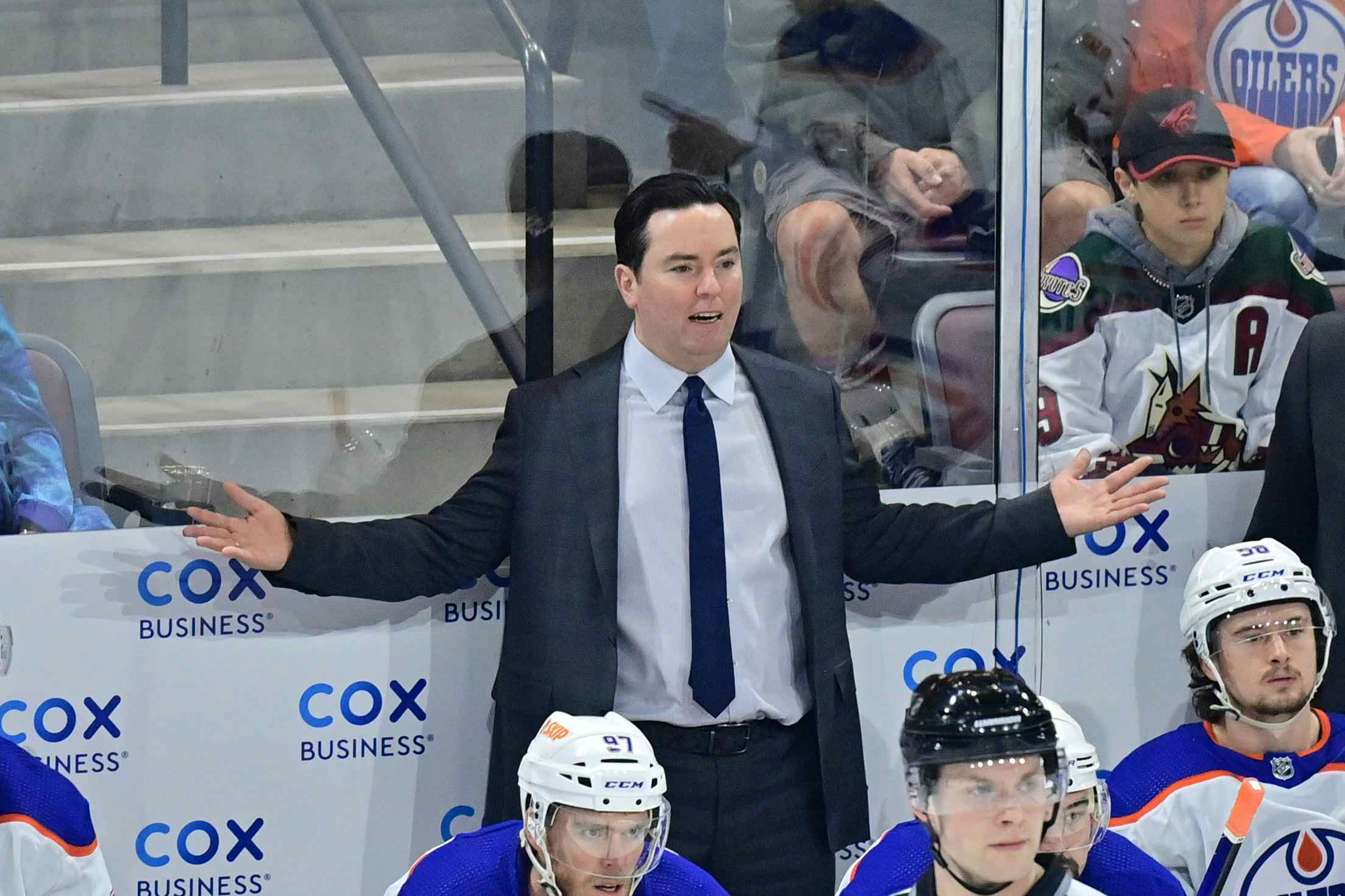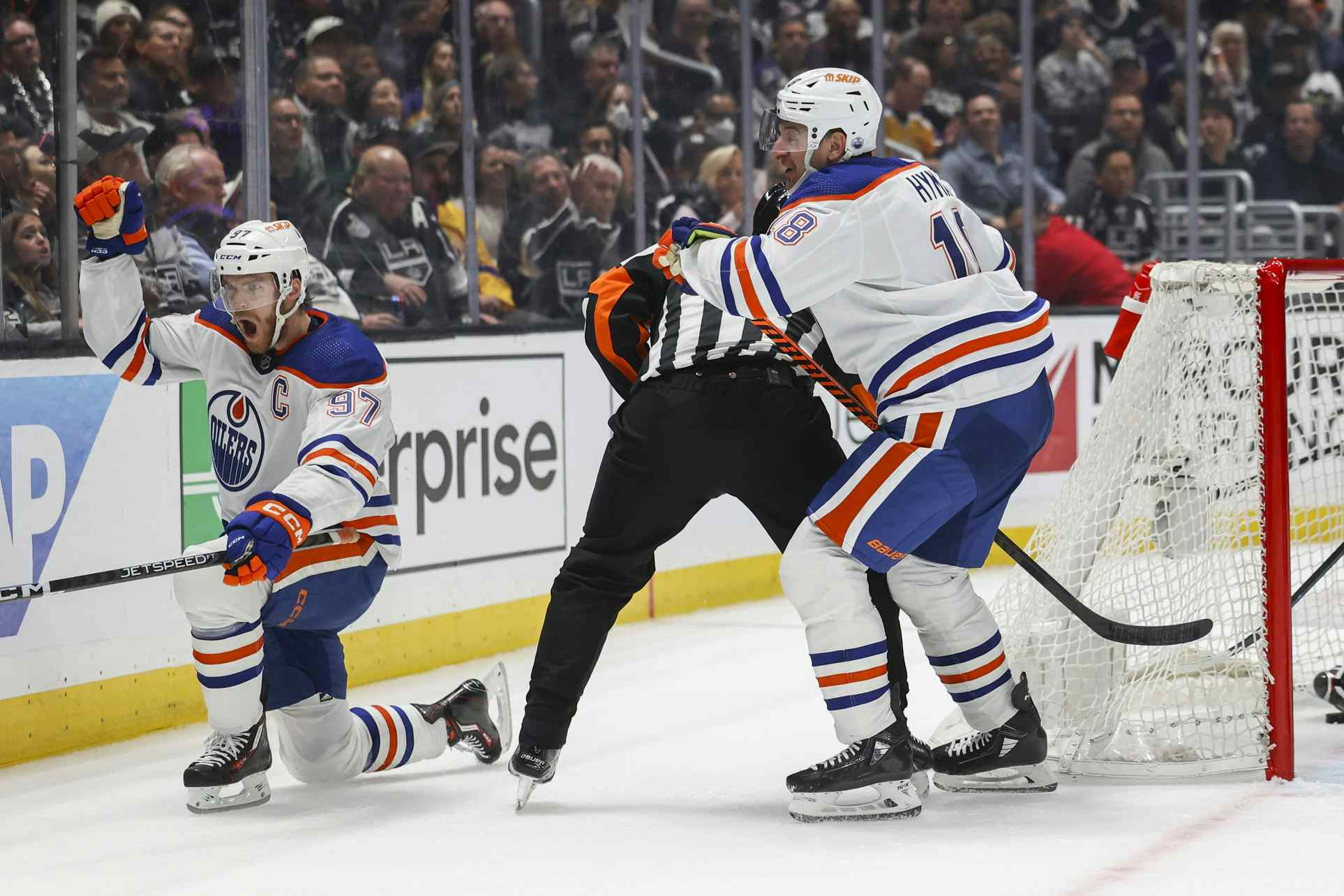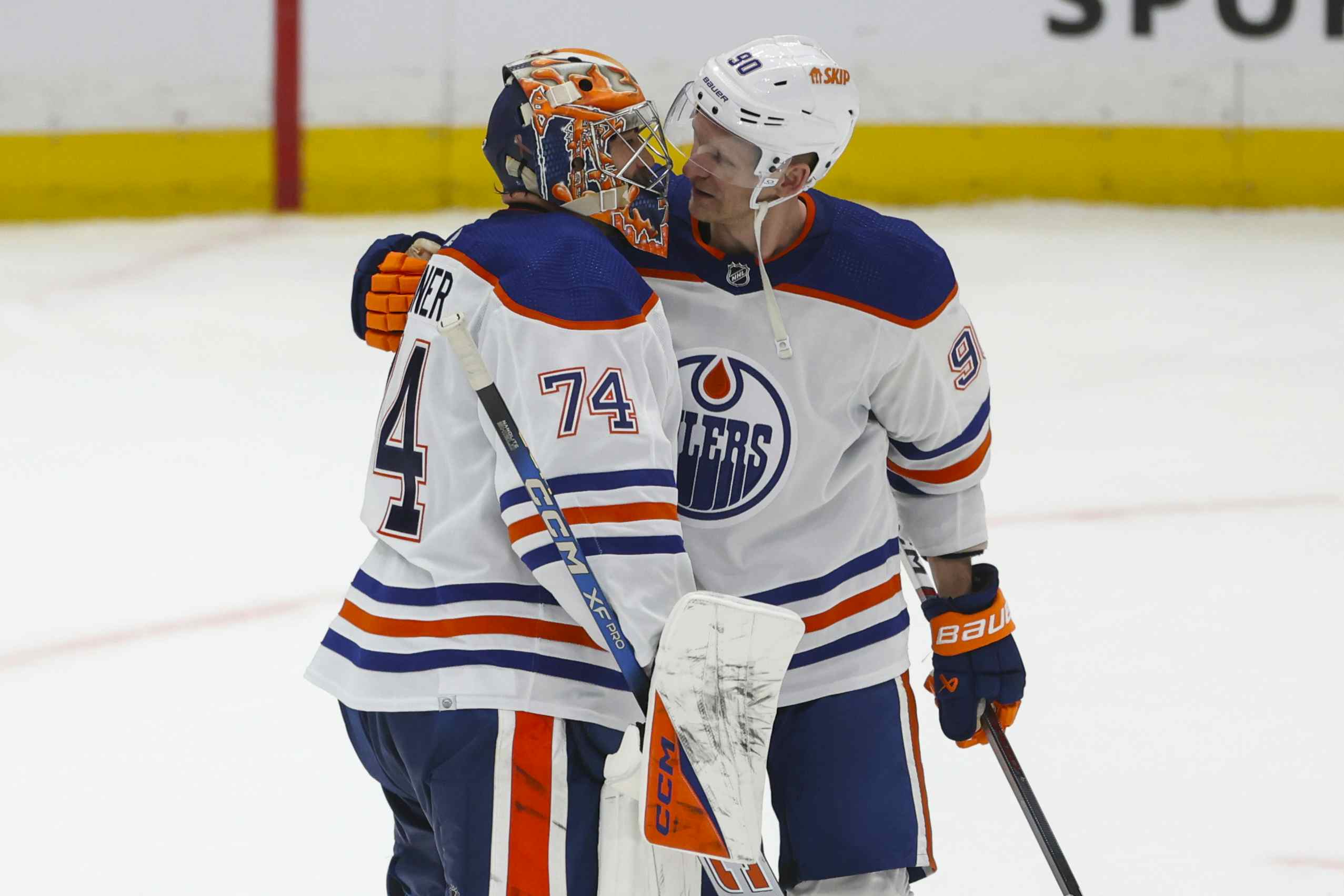TUESDAY TIDBITS…LEARN FROM DETROIT
By Jason Gregor
10 years ago
Mike Babcock has been coaching hockey for over 25 years. He started his coaching career with Red Deer College in 1988. Since then he’s coached in Moose Jaw and Spokane of the WHL, the University of Lethbridge, the Cincinnati Mighty Ducks of the AHL, the Anaheim Ducks and he’s currently in his ninth season with the Detroit Red Wings.
He’s also guided Canada to gold medals at the 1997 world junior championships, the 2004 world hockey championships and the 2010 Olympics.
I had the pleasure of speaking with Babcock on my radio show recently, and he had some excellent insight into what makes him a successful head coach.
Babcock is one of the most intense men I’ve ever interviewed. He’s never turned down a request for my show, of course we are smart enough to only ask once or twice a season, and I’ve learned I need to be prepared just to interview him. If you ask a stupid question, he isn’t afraid to tell you about it. I learned that four years ago when we chatted in the bowels of Rexall Place.
Babcock is one of the most intense men I’ve ever interviewed. He’s never turned down a request for my show, of course we are smart enough to only ask once or twice a season, and I’ve learned I need to be prepared just to interview him. If you ask a stupid question, he isn’t afraid to tell you about it. I learned that four years ago when we chatted in the bowels of Rexall Place.
It was a great learning experience for me, and every since then, every time I try to think of an angle that we haven’t discussed before.
Here is our conversation, with my thoughts in italics.
Gregor: When you came into the NHL, how did you adapt to NHL players after being an American League coach. Was there a certain adjustment in dealing with an NHL player compared to an American League player and if so, what was the main one?
Babcock: You know that’s a great question. This is what I would tell you, when I was a college coach and I went to junior, I was a college coach. When I was a junior coach and I went back to college, I was a junior coach. When I was a college coach going back to junior, I was a college coach. Then when I was in the American League I was a junior coach. When I got to the NHL I was an American League coach.
I don’t know if it makes any difference, this is what I do know. If you know what you are talking about and you make players accountable and you help them to get better, it doesn’t matter what league you played in or coached in, but you’ve got to be able to help them. And so for me, to tell you the truth, it wasn’t a big transition. I never thought much about it, I just did my job.
**I asked this question because recently I’ve heard many people suggest Dallas Eakins was only an AHL coach, and that he’s been overwhelmed. Every coach was a rookie NHL head coach at some point, and Eakins spent time in the NHL as an assistant prior to coming here, so I doubt he’s completely overwhelmed. Is he learning things the hard way, you bet, but he hasn’t incorporated any systems that the NHL hasn’t seen before.**
Gregor: How do you make players accountable?
Babcock: Well how do you make anyone accountable? When you’re family, I think that accountability starts at your family. When you sit down at the kitchen table and you talk to one another and someone says something stupid, everyone in the family jumps all over them and doesn’t let them get away with it.
The same thing has to happen in your business. You have to be able to have hard meetings. Lots of times when in companies what you do is you talk behind each other’s back, you go to the meeting and no one calls each other out and you continue to talk behind each other’s back.
If someone would just talk about the big elephant in the room, have a hard meeting for two seconds, tell people what needs to get done, everyone would be much happier. But those are hard decisions and those are hard meetings to have. I just think if you’re honest with people and you are straight forward and hold them accountable but treat them with respect, that’s not an issue.
**I like interviewing Babcock because often he uses scenarios that the audience can relate to. None of us have been NHL head coaches, but we all have families and we can relate to his response. Eakins biggest challenge moving forward is going to be to finding a way to make his players accountable. It likely isn’t going to be a comfortable conversation, but it has to happen. It will be interesting to see how he goes about trying to get his players to become competitive every game.***
Gregor: Last year you told me that you loved the challenge of not having Nick Lidstrom and you thought that it would make you a better coach. What’s your approach, what’s your new challenge this year that you didn’t have last year?
Babcock: I think that each and every year it’s different and what you’re trying to do, just like in any job, is lifelong learning, continue to evolve. If you did what you did last year, you can’t be successful. If you continue to push the envelope and get better, you have a chance.
How do you get better? Well you find new ideas, you’re innovative, you come up with something new, you talk to different people, and you try to get better.
For Pavel Datsyuk it’s the same thing. He wants to be the best player in the world, and so we have to continue to work on his game. When Pavel plays well, we tell him, when Pavel doesn’t play good, we talk about it. I talked to Pavel Datsyuk every day. He’s the last guy in the dressing room on the way to practise. I walk out right behind him, anything he needs to tell me, anything I need to tell him, I tell him. It’s pretty straight forward relationship. He’s not shy to tell me if he doesn’t like what’s going on, and I’m not very shy either.
LEARNING FROM PLAYERS…

Gregor: When you bring in a player like Daniel Alfredsson, do you teach a veteran differently from how you would teach a guy coming up from the American League or juniors?
Babcock: I think the whole key is that you have a way that your whole team has to play to be successful. In other words, you have to come up with a blueprint and your blueprint is different each and every year because your team is different. So what you try to do is ask those players to find their game within our game. But to be honest with you, Daniel Afredsson for me, it’s like a coach’s dream. He’s been in different organizations, he’s been coached by different people.
Today I actually met with Alfredsson, I said ‘do you have a few minutes for me; I have a lot of questions’ he said sure. So we sat down, I said ‘I want to go through our program. I want you to talk and me to listen. I want to know about how we teach, how our meetings are, how are travel has been, how our practices are, how our bench practices are. I have thick skin; I just want to get better. Tell me what you think.’ And that way I think you build a relationship with a guy who has a lot to offer. I don’t mind trying to help him get better; I’m hoping that he isn’t going to mind trying to help me to get better. In the end it just helps the Red Wings be successful.
Gregor: Without giving away any secrets, was there anything that he told you that you could share with us?
Babcock: Well there is nothing that I would share with you, but there are definitely things that he told me and so what you do is that you try to take that to heart and go from there.
When I met with Pavel the other day, he didn’t like a few things that were going on in the neutral zone. We tried what he suggested that day in practise. Did it help our team be better? I don’t know but he didn’t like the way that we were doing it. I tried to focus on it.
He identified something that I hadn’t thought of; I tried to focus on it. Are you doing that with all players? Absolutely not. But there are guys who have put in the time and done things well enough and have enough experience and are all about winning that when they give you an opportunity to get better, it would probably help you to listen.
He identified something that I hadn’t thought of; I tried to focus on it. Are you doing that with all players? Absolutely not. But there are guys who have put in the time and done things well enough and have enough experience and are all about winning that when they give you an opportunity to get better, it would probably help you to listen.
***Babcock is always striving to learn something new, and having veterans like Datsyuk and Alfredsson around makes his job much easier. Eakins has said he’s open to listening to his players, and even fans who give him ideas at the gas station, but right now he doesn’t have the luxury of bending the ears of two potential Hall of Fame players. A smart coach or business leader should always be open to learning from his peers, and it doesn’t surprise me that Babcock approached Alfredsson to get his views on the Red Wings.***
Gregor: Two of your assistant coaches went on to be successful in Ottawa and San Jose. What type of responsibilities do you put on your coaches so that they are ready to move on when that next opportunity comes along?
Babcock: I think that that’s a huge part of successful organizations is that people have opportunities to move on. If you think about the Red Wings since I’ve been there, Steve Yzerman, who played for us and then worked with us, is the general manager in Tampa and the head of our [Canadian] Olympic team. That for me was a key guy in acquiring pro players. Todd McLellan is in San Jose, Paul MacLean, who else do we have out there? We just lost Jim Nill.
So we’re building staffs for the rest of the league. I don’t know if that’s what we want, but in saying that unless you give people opportunity, how do you get better? I had a great young coach in Jeff Blashill; he’s now coaching our American League team. I have Tom Renney, a veteran coach who is really helpful. Bill Peters is one of my assistant coaches; he’ll be a head coach in the NHL just because of his relationship with players, his work ethic and his knowledge of the game. You want those people to continue to grow and get new jobs because you also have to change your staff. If they don’t move on, you don’t get to change.
***I didn’t like Eakins kept two coaches he’d never worked with before. Eakins said it was his choice, but I have a hard time believing that. One of the biggest issues for the Edmonton Oilers right now is that they don’t do simple things like letting the coach choose his own coaching staff. There is no way that Pat Quinn, Tom Renney, Ralph Krueger and Dallas Eakins all chose to retain Kelly Buchberger. I truly don’t understand why the Oilers believed it would work for them, when history has proven it didn’t work for other teams. Coaches need to pick their assistant coaches.***
Gregor: Mike you mentioned how every year is different, you don’t do the same thing. How often do you tweak your system? Do you wait 20 games, or is it 2 games or 5 games if something isn’t working?
Babcock: I guess what I would tell you is that the more you win, and the more confidence you have sometimes the steadier you are on the rudder when you know that something is going to work. On the other side of that, when something isn’t going to work, why would you beat a dead horse? You evolve it and you change it, especially if it’s not working for the group that you are coaching this time around.
I’m a big believer that each year you got to find a way to play that’s going to get that group successful. And so you’re constantly, I’d call it R&D. You’re watching everybody else and you rob and you do. You take anything you can see that forms a new idea and you try to evolve and get better. And when someone is doing something better than you, you try to work it into your game. For me, there’s a fine line. Hockey is hockey and in saying all that though, the game constantly evolves as the player evolves and you have to keep them interested. I’ve been in Detroit, this is my 9th year, there is no way that you can bring the same program every year, they would be bored stiff with that.
***Eakins has already tweaked his defensive zone coverage, and it improved, because teams haven’t been getting five-star chances in the slot regularly like they were through the first seven games. The problem is many other aspects of their game have fallen apart.***
QUICK HITS….

- Babcock is a great coach, but he’s told me on many occasions that he is only as good as his players. He’s had the luxury of having great players who were also great leaders. Eakins has to hope that a few of his young players emerge as solid leaders quickly.
- Ryan Smyth is currently tied with Claude Lemieux and Ted Lindsay for 102nd overall in goals scored, 379, in NHL history. He needs five goals to move into the top-100 of all-time. I understand that Smyth isn’t the player he once was, but he knows how to score ugly, gritty goals. The young Oilers should be asking Smyth about how he was able to be competitive every shift for many years. Smyth paid a price to score goals, and currently none of the Oilers forwards have shown a willingness to do that on a nightly basis. Scoring goals is hard, and the young Oilers must realize they won’t be able to score pretty goals every night.
- The Oilers have allowed 10 more goals than every other team. If the players don’t realize they must improve their defensive play this team is never going to improve.
- What are the Minnesota Wild and Chuck Fletcher thinking? They’ve played 15 games, but Matt Dumba has only dressed in 9 of them. Dumba has been a healthy scratch for a week, while the Wild decide if they want to waste the first year of his ELC and keep him in Minnesota. He’s only averaging 12 minutes a night, and he’s only dressed for 60% of their games. Why is this decision difficult? Send him back to Red Deer. I’m sure Brent Sutter can help with his development.
- Get your tickets for the 2nd annual DJ Suitcase (Strudwick) party. It will be a great night, and it doesn’t cost you actually make money when you buy a ticket. Details here. Only 150 tickets left.
Recent articles from Jason Gregor

